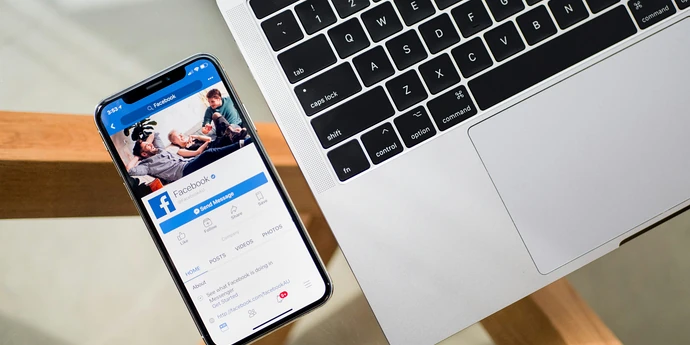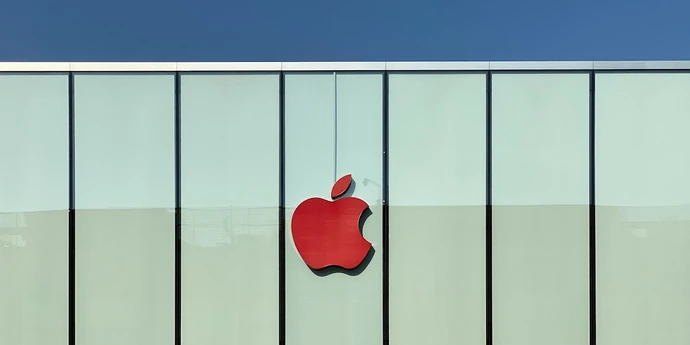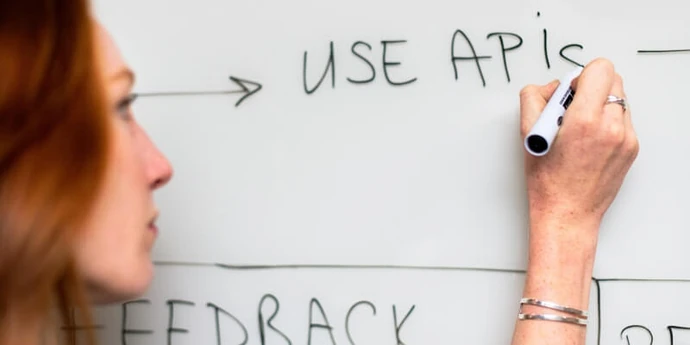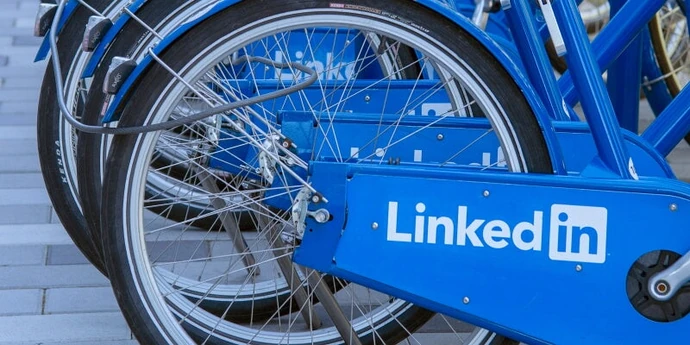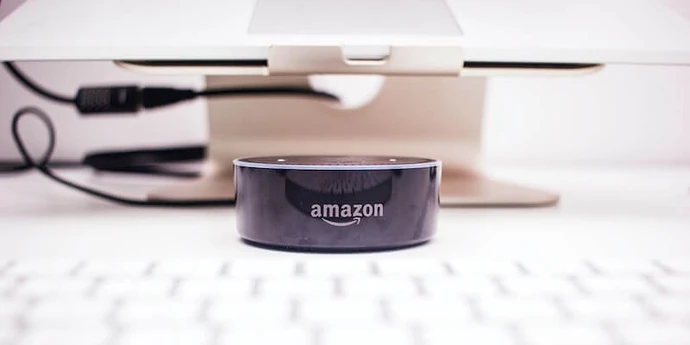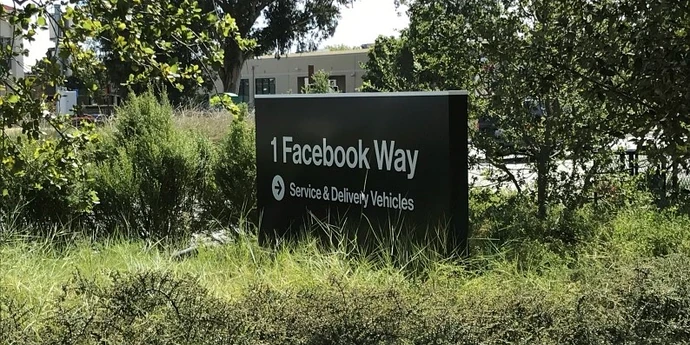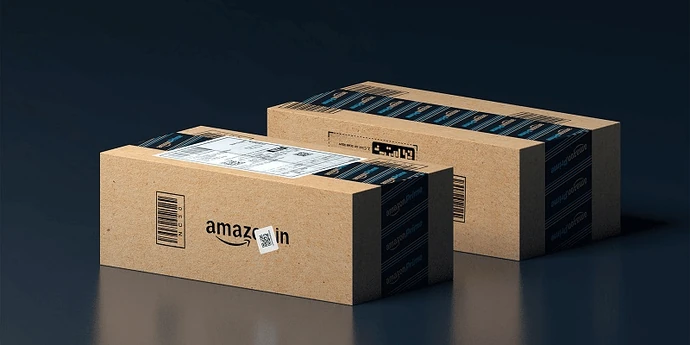Today, we’re going to cover everything you need to know to prepare for your Uber engineering manager (EM) interview.
The Uber interview process is challenging. You’re expected to demonstrate both outstanding technical know-how and top-notch managerial skills. Plus, you’ll need to show that you’re ready to take on Uber’s scalability challenges with your system design expertise.
But not to worry. In this guide, we’ve gathered all the resources you need to ace your Uber engineering manager interviews: reports and insights from real candidates and former and current Uber EMs, information from official sources, plus other helpful advice from FAANG coaches. Reviewing this guide should help kickstart your interview prep in the right direction.
Here’s an overview of what we’ll cover:
- Role and salary
- Interview process and timeline
- Example interview questions
- Interviewing tips
- Preparation plan
Alright, let’s get started!
Click here to practice 1-on-1 with an ex-Uber interviewer
1. Uber Engineering Manager Role and Salary↑
Before we cover your engineering manager interviews at Uber, let's take a quick look at the role itself.
1.1 What does an Uber Engineering Manager do?
As an engineering manager at Uber, you’ll be responsible for leading a team of engineers, combining technical expertise with leadership to drive major projects forward. Your goal as an Uber EM is to provide ample support, mentorship, and leadership to help your engineers achieve your vision as a team, while also making sure you’re aligned with the company’s overall business goals and strategy.
Uber has three main engineering teams: core services, platform, and mobility and delivery. These teams are further divided into subteams such as growth, risk, grocery, maps, delivery experience, infrastructure, and more. You could be assigned to any of these teams depending on your experience, expertise, and interest.
Uber is a global company, with engineering and product teams in different parts of the world, so as an EM, you need to support effective cross-functional collaboration across the globe.
What skills does an Uber engineering manager need?
An analysis of engineering manager job offers at Uber shows that the company usually asks for three basic requirements: a bachelor's degree (in computer science or a similar program is often specified) or equivalent practical experience, 5 to 10 years of specialized engineering experience, and 5 years' experience in a technical leadership role.
1.2 How much does an Uber Engineering Manager make?
On average, Uber EMs make 41% more than other EMs in the US, according to Glassdoor.
Compensation mainly depends on two key factors: location and level.
Location: Salaries are adjusted for cost-of-living. For example, Uber EMs in the US make 3x more than their counterparts in India.
Level: Both base salary and total compensation go up with each EM level.
Here’s the average salary and compensation rates for the different engineering manager levels at Uber. This is based on the reported data from Levels.fyi.

If you’re unsure what level you’re being considered for, ask your recruiter.
Ultimately, how you do in your interviews will determine what level you’re offered. That’s why hiring one of our Uber engineering manager interview coaches can provide such a significant return on investment.
And remember, compensation packages are always negotiable. So, if you do get an offer, don’t be afraid to ask for more. If you need help with salary negotiation, consider booking a salary negotiation coaching session with one of our experts to give yourself a leg up.
2. Uber Engineering Manager interview process and timeline↑
The full Uber interview process for the engineering manager role can take from 2 weeks to 3 months from your initial application to when you receive an offer. It can take more or less time, depending on the particular location and position for which you’re applying.
2.1 What steps to expect
Here’s a quick overview of the steps you’ll take along the way.
- Resume screen
- Recruiter screen
- Initial screen
- Onsite interviews
- System design and architecture interviews
- Technical knowledge interviews
- Multi-panel leadership interviews
Let’s take a look at each step in detail.
2.1.1 Resume screen
This is the most competitive part of your Uber application process. You’ll have to make sure your resume matches the position you’re applying for.
If you haven't yet got an interview at Uber, you'll want to get your resume up to scratch.
You can use this free engineering manager resume guide to help tailor your resume to the position you’re targeting.
If you’re looking for expert feedback, you can also get help and feedback on your engineering manager resume from one of our ex-FAANG recruiters, who will cover what achievements to focus on (or ignore), how to fine-tune your bullet points, and more.
2.1.2 Recruiter call
In most cases, you'll start your interview process with Uber by talking to a recruiter on the phone. They are looking to confirm that you've got a chance of getting the job at all, so be prepared to explain your background and why you’re a good fit for the company.
You should expect typical behavioral and resume questions like, "Tell me about yourself," "Why Uber?", or "Tell me about your current day-to-day work as an Engineering Manager." It helps to prepare a short introduction (2 to 3 minutes max) so you won’t ramble on due to nerves.
Give the recruiter plenty of reasons to put you through to the next round and convey your enthusiasm for working at Uber.
If you get past this first HR screen, the recruiter will then help schedule your next rounds of screening. Your recruiter will usually let you know who you are interviewing with and what type of interviews you should expect. They’ll also share resources to help you prepare for them.
2.1.3 Initial screen
If the recruiting team deems you a good fit for the role, they’ll endorse you next to the hiring manager. During this screen, be prepared to talk more in-depth about your professional experience and skills.
You can also use this opportunity to learn more about the role and team you’re applying for, so come prepared with thoughtful questions.
2.1.4 Onsite interviews
For the full onsite interviews, you may expect up to 2 sessions consisting of multiple rounds per session.
For the first session, you’ll be interviewing with the team or business you’re applying to. You can expect technical rounds heavily focused on system design and architecture. You might also be asked about your technical background, including how you’ve handled projects in previous roles.
You’ll also have a general leadership interview during the first session with an engineering leader at Uber.
In some reports, candidates were also asked practical coding questions. Verify with your recruiter regarding this.
If you successfully pass this first onsite session, your recruiter will then schedule you for a final interview. This will consist of several interviews with team members or engineering leaders from different businesses/teams. The interviews will focus on different aspects of leadership, such as team building, vision, and execution and delivery.
2.2 How offer decisions are made
Once you've completed all of your interviews, the people at Uber will hold a "debrief" to discuss your application.
A "debrief" is a meeting where your recruiter and all of your onsite interviewers come together to decide if you'll be given an offer. More specifically, this meeting includes all of the people you met during interviews, in addition to your recruiter.
During the meeting, all of these people work together to make the decision collectively. By the end of the meeting, they will come to a "hire" or "no hire" decision. Sometimes, the candidate's level is also decided during their discussion.
Now that we've covered Uber's interview process, let's dive into the questions you might encounter during your onsite interviews.
3. Uber Engineering Manager example questions↑
As mentioned above, you’ll encounter three different types of interview questions in your Uber engineering manager interview. They are:
In this section, we'll dig deeper into those three types of interviews to give you a clearer idea of what questions to expect. We'll also provide example questions that you can practice with.
The questions we'll list in the next few sections are typical EM interview questions and a few that were reported for the Uber EM interview on Glassdoor. We've categorized the questions and changed the grammar and phrasing in some places to make the questions easier to understand.
If you need even more questions to practice with, you can also take a look at our list of 65 engineering manager interview questions.
3.1 System design and architecture interviews
According to Gergely Orosz of the Pragmatic Engineer blog, Uber engineering managers “are heavily involved in architecture and need to understand—and sometimes challenge—how their teams approach their planning.” So you can expect your technical interviews to focus on this aspect.
In system design interviews, you'll want to show that you can be creative and structured at the same time. The questions are typically quite open-ended, and the interview itself can feel like a conversation.
In most cases, your interviewer will adapt the question to your background. For instance, if you've worked on an application programming interface (API) product, they'll ask you to design an API. But this won't always be the case, so you should be ready to design any type of product or system at a high level.
You should also take into consideration scalability challenges in your answer. This is one of the most crucial points your interviewers will be assessing you on.
Along with a few reported questions for Uber EMs on Glassdoor, here are the most common system design questions asked in engineering interviews in companies such as Google, Amazon, and Meta.
This first set of example system design questions are "Design X" types questions asked at Uber EM interviews
Example "Design X" system design questions
- Design a database system with specific transaction handling features and data storage requirements.
- Design the Restaurant Listing API for Uber Eats.
- How would you resolve a scaling issue in the payment module?
- How will you migrate a monolith application to microservices?
- Design TikTok (watch answer)
- Design a system that reads book reviews from other sources and displays them on your online bookstore.
- Design a short URL system. (watch answer)
- Design a real-time comment system to go under a Facebook post which may have millions of concurrent active users.
- How would you use a load balancer for memcache servers? (watch answer)
- Design a ticketing platform. (watch answer)
- Design a boggle solver.
- Design a distributed ID generation system. (read answer)
- Design a system that counts the number of clicks on YouTube videos. (read answer)
This next set of example system design questions focuses on previous system design projects you've already done.
Example "past project" system design questions
- What's your experience in developing native mobile apps?
- Describe a system/product/app you or your team built. (watch answer)
- How did you evaluate the design of your system?
- How did you test performance and scalability?
- Describe the bottleneck of the system you designed.
- Tell me about a time you scaled a system.
For more practice, take a look at our list of system design interview questions.
3.2 Technical knowledge interviews
As an engineering manager at Uber, you’ll be spending more time leading and using your soft skills than getting technical and writing code, etc. But you still need excellent technical knowledge to help your team tackle some of the most important and complex challenges your company might face.
At Uber, some engineering manager roles require candidates to possess not just good engineering methodology, but also outstanding skills they can directly put to use should they be called to “lead from the front.”
In some cases, you might be asked to write or review code the way they do at Google, or you might be asked behavioral questions that test your technical knowledge and experience, as they do in Amazon and Meta interviews.
If you’re unsure whether to expect coding questions in your interviews, check with your recruiter.
As a rule of thumb, if you're told you'll have a coding interview as an EM candidate, you can expect "medium difficulty Leetcode" type questions.
The questions below come from Glassdoor data on Uber EM and Google engineering interviews. We’ve taken some questions from non-management software engineer interviews, as there is more data available for those roles. However, these questions should also be relevant to management candidates.
This first set of example technical knowledge questions asked at Uber EM interviews focus on your technical experience.
Example technical knowledge/experience questions
- Describe the most complex algorithm you needed to communicate to a team.
- What is the volume of data that your team deals with on a daily basis?
- What is the difference between blocking and non-blocking services?
- How do you manage down/upstream dependencies?
This next set of example technical knowledge questions asked at Uber EM interviews focus on coding questions. We also provide links to solutions for each question.
Example coding questions
- Swap the values in a link list. (Solution)
- Given the root node of a binary search tree, return the sum of values of all nodes with value between L and R (inclusive). (Solution)
- Given a binary tree, find the maximum path sum. The path may start and end at any node in the tree. (Solution)
- Given an encoded string, return its decoded string. (Solution)
- Implement a SnapshotArray that supports predefined interfaces (note: see link for more details). (Solution)
- Given an array nums of n integers where n > 1, return an array output such that output[i] is equal to the product of all the elements of nums except nums[i]. (Solution)
- Given a matrix and a target, return the number of non-empty submatrices that sum to target. (Solution)
- Say you have an array for which the ith element is the price of a given stock on day i. If you were only permitted to complete at most one transaction (i.e., buy one and sell one share of the stock), design an algorithm to find the maximum profit. (Solution)
3.3 Leadership interviews
Engineering managers need to have excellent soft skills to coordinate teams, lead projects, and set a vision. For this reason, you can expect your Uber EM interview to be heavily focused on leadership.
Leadership questions often take the form of "behavioral" questions in that they'll test your past behavior in order to predict future behavior. They’ll broadly fit into these three sub-categories:
- Culture fit questions. Top tech companies make an effort to cultivate their own unique culture and Uber is no different. Interviewers will want to understand your motivation for the role and to see whether your personality will have a positive impact on the company's way of doing things.
- People management questions. People management questions tend to dive into how you will lead your team. You can expect questions about how you will get the best out of people and how you’ll deal with problems and conflicts that may arise.
- Project management questions. These explore how you would effectively lead projects end-to-end. You should expect questions about project management methodologies, your ability to deal with complex and ambiguous situations, and your experience delivering results.
Here are examples of leadership questions asked in Uber EM interviews for each sub-category.
Example leadership questions
Culture fit
- Tell me about yourself.
- Why are you leaving your current job?
- Why this company? (example answer from Amazon interviews)
- Tell me about a mistake you made and the lesson you learned from it.
- When was the last time you did something innovative?
- In your career, what achievement are you most proud of?
People management
- Tell me about a time you showed leadership.
- How do you deal with high and low performers?
- How do you manage your team’s career growth?
- Tell me about a difficult employee situation that you handled well/not so well
- Tell me about a time you had a conflict with your supervisor and how you resolved it
- How do you handle conflicts?
- Describe the worst manager you've ever had.
- Say you have an underperforming employee. If your manager told you to ignore them and focus on more productive employees, would that bother you?
Project management
- Tell me about what you've been working on over the last year.
- As a manager, how do you handle trade-offs?
- Describe how you deal with change in management.
- Tell me about a time you handled a difficult stakeholder.
- Describe in detail a project that failed.
- What is your approach to strategic planning?
- How do you manage projects?
- How do you handle risks?
When you’re preparing for this part of the interview, we recommend consulting our leadership, people management, and program/project management primers.
Then we recommend reading Grokking the engineering management leadership interview. Written by ex-Google EM coach Mark, it's a highly insightful deep dive into answering leadership/behavioral questions that you might encounter at top tech companies such as Uber.
4. Uber Engineering Manager interview tips↑
You might be an excellent engineer and a great manager, but unfortunately, that’s not necessarily enough to ace your interviews at Uber. Interviewing is a skill in itself that you need to learn.
Let’s look at some key tips to make sure you approach your interviews in the right way.
4.1 Show that you have a growth mindset
At top companies like Uber, you'll continuously face new and different challenges, and you'll need to adapt quickly and learn fast. Interviewers are on the lookout to see if you have a growth mindset, which will help you adapt and learn in new situations, versus someone who is stuck in their ways.
"Do the stories and experiences that you're giving show that you're always looking to grow and learn, rather than having a fixed mindset? That's an important signal the interviewer is looking out for." - EM coach Mark.
4.2 Demonstrate humility
Humility is an important trait in an engineering manager and you should make sure to convey that you have it.
You can do this in various ways; for example, by being open about failures when you're answering leadership questions, or reacting positively to hints from the interviewer about the limitations of your design in a system design interview.
4.3 Ask clarifying questions
“When a problem is presented to you, don’t start drawing the solution immediately. First, ask questions to clarify all the details you need,” - Uber EM Tatiana Maluf advises.
Jumping straight in without asking questions first will be a red flag to the interviewer and will hinder your answer.
4.4 Differentiate between different types of leadership questions
In the leadership interview, it's important to give the interviewer the kind of answer they're looking for.
If they ask you a "tell me about a time" question, that's your cue to give them a well-prepared story from your past. But if they give you a scenario, they want you to answer using a hypothetical case. Likewise, if they ask about your skillset, avoid giving a long anecdote and instead list some of the leadership tools you use.
Watch this video for EM coach Mark's detailed explanation of story, scenario, and skillset categories of leadership questions.
4.5 Communicate your thought process clearly and efficiently
An interview is an artificially compressed time. You won't be used to working and talking about things at this speed, and so you need to communicate with the interviewer efficiently. This takes practice.
This is especially significant for technical rounds, where you need to be sure that the interviewer can follow your thought process. During your system design interview, you’ll want to make sure you talk your thought process through in the most succinct way possible as you diagram and justify your choices.
“While drawing a solution, walk the interviewer through your thought process. Uber is not just interested in your answer, but your thought process and how you build a solution. Consider trade-offs and explain them.” Uber EM Tatiana Maluf
4.6 Answer methodically by using a framework (but don’t get stuck in one)
Using an answer framework will help you give a more clear, structured answer.
We recommend the SPSIL (Situation - Problem - Solution - Impact - Lessons) framework for leadership questions. For system design questions, we recommend studying our system design interview guide for an effective answer framework.
Still, excessive reliance on frameworks may hinder your performance. So, during your interview, trust your instinct and don’t be afraid to deviate from the framework if needed. A framework is there to help you craft a better answer, so don’t feel like you have to twist your answer to fit the framework.
4.7 Be data-driven
Uber is a very data-driven company so to show that you’re a good fit, be prepared to talk about how you use data to make decisions.
In interviews, it’s okay to make assumptions because you might not have access to the proper data. But you need to make it clear that in real life, you would seek out that data and that your approach would be highly data-driven.
When talking about your previous experience, collect all the relevant metrics/KPIs to show how you measure success.
4.8 Treat the interview like a conversation
Keep in mind that the interview is a two-way discovery process. While the interviewer assesses if you’re a good fit for Uber, you’re also evaluating if the company aligns with your aspirations and preferences.
To make an informed decision about your application, come ready with thoughtful questions that you can ask at the end of your interview. Interviews can be quite exhausting, so if you prepare questions beforehand, you won’t have to worry about them during the interview.
That said, if you do come up with a question during the interview, don’t hesitate to ask. This shows how engaged you are in your interview.
4.9 Center on the company’s core values
Study Uber’s values and mission statement. When answering leadership questions, share stories from past experiences that align with Uber’s core values. When designing a system or a strategy, consider how your answer aligns with these values.
5. Preparation plan↑
Now that you know what to aim for in your interviews, let's focus on preparation.
We've coached more than 15,000 people for interviews since 2018. There are essentially four activities you can do to practice for interviews. Here’s what we've learned about each of them.
5.1 Learn more about the company
Most candidates fail to do this. But before investing tons of hours preparing for an interview at Uber, you should take some time to make sure it's the right company for you.
Uber is prestigious and it's therefore tempting to assume that you should apply, without considering things more carefully. But, it's important to remember that the prestige of a job by itself won't make you happy in your day-to-day work. It's the type of work and the people you work with that will.
If you know any engineers who work at Uber (or used to), then it's a good idea to talk to them to understand what the culture is like. In addition, we would recommend reading the following resources:
- Uber’s values
- Uber’s engineering blog
- Uber’s strategy teardown (by CB Insights)
- Uber’s engineering review process (by Gergely Orosz of Pragmatic Engineer)
5.2 Practice by yourself
Practicing by yourself is an essential early step. We recommend you make full use of the free prep resources on this blog and also watch some mock interviews on our Engineering channel. That way you can see what an excellent answer looks like.
Interviewing for an EM role at another company? You may also want to check out our other company-specific EM interview guides:
- Microsoft engineering manager interview guide
- Google engineering manager interview guide
- Apple engineering manager interview guide
- Meta engineering manager interview guide
- Netflix engineering manager interview guide
- DoorDash engineering manager interview guide
- Uber engineering manager interview guide
Once you’re in command of the subject matter, you’ll want to practice answering questions. But by yourself, you can’t simulate thinking on your feet or the pressure of performing in front of a stranger. Plus, there are no unexpected follow-up questions and no feedback.
That’s why many candidates try to practice with friends or peers.
5.3 Practice with peers
If you have friends or peers who can do mock interviews with you, that's an option worth trying. It’s free, but be warned, you may come up against the following problems:
- It’s hard to know if the feedback you get is accurate
- They’re unlikely to have insider knowledge of interviews at your target company
- On peer platforms, people often waste your time by not showing up
For those reasons, many candidates skip peer mock interviews and go straight to mock interviews with an expert.
5.4 Practice with experienced engineering manager interviewers
In our experience, practicing real interviews with experts who can give you company-specific feedback makes a huge difference.
Find an Uber engineering manager interview coach so you can:
- Test yourself under real interview conditions
- Get accurate feedback from a real expert
- Build your confidence
- Get company-specific insights
- Learn how to tell the right stories, better.
- Save time by focusing your preparation
Landing a job at a big tech company often results in a $50,000 per year or more increase in total compensation. In our experience, three or four coaching sessions worth ~$500 make a significant difference in your ability to land the job. That’s an ROI of 100x!







